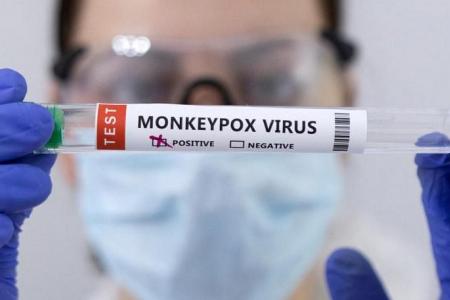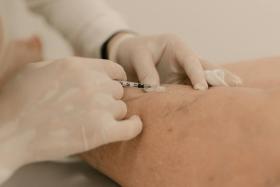Monkeypox not life-threatening, no need to admit patients, say experts
Monkeypox is not a life-threatening condition for many who get it, but it is still important for those affected to be isolated to minimise further transmissions in the community.
Responding to the Health Ministry's decision to set up a separate facility for patients, health experts said this makes sense since there is no need for strict clinical monitoring for the vast majority of patients, and putting them in hospital would unnecessarily soak up precious hospital resources.
On Monday (Aug 1), MOH announced that all monkeypox patients who are clinically stable will be transferred to a dedicated monkeypox isolation facility.
MOH has not said where the facility is located.
Professor Teo Yik Ying, dean of the National University of Singapore's Saw Swee Hock School of Public Health, said the key difference why monkeypox patients do not need to be sent to the hospitals or the National Centre for Infectious Diseases is that monkeypox is not a life-threatening condition for the majority of cases.
Hence, there is no real requirement for strict clinical monitoring, he added.
"What is important here is to differentiate between the need for isolation versus the need for clinical monitoring. Shifting the cases to a dedicated isolation facility is very much in the same spirit that we established the community isolation facilities for Covid-19 previously to isolate the infected people to minimise further transmissions in the community or family," Prof Teo said.
He expects more monkeypox cases to surface over time, something that is consistent with the infectious nature of the disease.
Admitting patients to the hospital is overkill, but sending them home, as what Britain is doing, would pose unnecessary risk to the household, said Associate Professor Alex Cook, vice-dean of research at the Saw Swee Hock School of Public Health.
MOH had previously said that monkeypox is typically a mild and self-limiting illness where the majority of patients recover within two to four weeks without requiring hospitalisation.
There were 12 monkeypox cases in Singapore as at Monday, said MOH on Tuesday evening. The latest case, a 59-year-old man, is a local unlinked case with no recent travel history, MOH added.
The quarantine period for close contacts has been cut from 21 days to 14 days, followed by seven days of monitoring for symptoms via phone calls.
The current outbreak emerged in May and has infected more than 18,000 people in 78 countries, said the World Health Organisation on July 27.
Nine people who contracted the virus in Africa, India, Brazil and Spain have died.
Symptoms linked to the monkeypox virus include fever, headache, muscle pain, swollen lymph nodes, chills, lethargy and skin rash.
MOH advised the public to exercise personal responsibility by monitoring their personal health, maintaining good hygiene and avoiding high-risk sexual activity, such as having multiple sex partners or casual sex, especially during travel.
They should also avoid close contact with individuals known or suspected to be ill with monkeypox.
Get The New Paper on your phone with the free TNP app. Download from the Apple App Store or Google Play Store now


